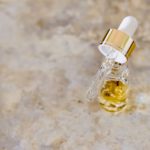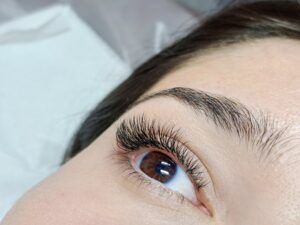Understanding the world of anti-aging skincare can seem overwhelming. With countless products on the market with labels filled with complex terminology, it can be daunting to decipher what ingredients are beneficial. This article serves as a comprehensive guide to decoding skincare labels covering anti-aging ingredients, their benefits, and how to incorporate them into one’s skincare routine for achieving a healthy, youthful skin.
How to Decode Anti-Aging Skincare Labels?
Understanding the Ingredient List
When examining a skincare product, the ingredient list is crucial. A skincare product, particularly anti-aging, will have a list of ingredients that are usually ordered from high to low concentration. The active ingredients, which provide the most skin benefits, are typically listed first. Ingredients like retinol, hyaluronic acid, and salicylic acid are often used in anti-aging skincare products and have been proven to shift the signs of aging.
Identifying Active Ingredients in Skincare Products
Active ingredients are those that target specific skin concerns. When decoding skincare labels, these are what you should look for. For instance, retinol and peptides are known to boost collagen production, thereby reducing the appearance of fine lines and wrinkles. Hyaluronic acid is known for deep hydration, improving skin texture, and maintaining skin hydration. Meanwhile, vitamins like vitamin C and E help to protect the skin from free radicals and stimulate skin regeneration.
Why is Decoding Skincare Labels Essential for Healthy Skin?
Understanding skincare labels help personalize care for specific skin types. Different skin types, from sensitive skin to dry or acne-prone skin, require different care products. By understanding and decoding skincare labels, you can ensure that you are applying suitable ingredients that will effectively serve your skin’s needs and prevent any undesired skin irritation and redness.
What Ingredients to Look for in Anti-Aging Skincare Products?
Retinol: The Golden Standard of Anti-Aging
Retinol is renowned as the golden standard of anti-aging skincare ingredients. It accelerates the turnover of skin cells and stimulates collagen production, reducing the appearance of wrinkles and improving the skin feel. However, retinol can cause irritation on sensitive skin, thus a careful introduction to your skincare routine is advised.
Hyaluronic Acid: The Hydration Powerhouse
Hyaluronic acid, a potent hydration powerhouse, attracts and holds water within the skin cells, providing deep hydration and making your skin appear plumper and youthful. It is suitable for all skin types, from dry skin to sensitive skin, and can be incorporated into any skincare routine to provide an additional layer of moisture.
Salicylic Acid: The Secret to Clear Skin
Salicylic acid is known to exfoliate and eliminate dead skin cells, unclog pores, and can even reduce redness. However, it may cause dryness and irritation on sensitive skin and should be used sparingly.
Demystifying the World of Skincare Ingredients
The Role of Peptides in Skincare
Peptides play a vital role in skin aging by aiding in the production of collagen, a key component that keeps skin looking youthful and clear. Adding peptides into your skincare regimen can help enhance skin elasticity, reduce wrinkles, and improve skin’s overall health and texture.
Vitamin C and Its Anti-Aging Benefits
Vitamin C is an essential skincare ingredient that offers multiple anti-aging benefits. It can reduce inflammation, lighten hyperpigmentation and brighten the skin, promoting a more youthful appearance. Moreover, it also protects the skin against damage from harmful UV rays and environmental pollutants.
How Sunscreen Reduces the Appearance of Wrinkles?
Sunscreen is vital for protecting your skin not just from the harmful UV rays, but also from premature skin aging. Regular use of it helps to reduce the appearance of wrinkles, pigmentation, and other signs of aging by maintaining the skin’s health and protecting against free radical damage.
Why do Some Ingredients Cause Irritation on Sensitive Skin?
Retinol and Sensitive Skin: Precautions to Take
Retinol can indeed cause irritation, especially for individuals with sensitive skin. It is thus paramount to slowly introduce retinol into one’s skincare regimen, starting with a lower concentration and gradually building up, to avoid triggering redness, dryness, or irritation.
The Potential Irritation from Salicylic Acid
Salicylic acid, while an effective exfoliant, does have potential to dry out skin and cause irritation, especially for individuals with sensitive skin. It is suggested to use salicylic acid on specific, acne-prone areas rather than over the entire face to prevent excess dryness.
How to Prevent Redness and Irritation?
Preventing redness and irritation essentially depends on understanding your skin type and catering to its specific needs. Always perform a patch test before adopting a new skincare product and listen to your skin’s reaction to different products and ingredients.
How to Incorporate Anti-Aging Ingredients into Your Skincare Routine?
Building an Anti-Aging Skincare Routine
Building a successful anti-aging skincare routine involves carefully selecting and integrating various products designed to cater to your unique skin requirements. Always layer your products beginning with the lightest (usually your serums) to the thickest (moisturizer, sunscreen) to ensure maximum absorption.
Maximizing the Benefits of Your Skincare Products
To maximize the benefits of your skincare products, consistency is key. Regular use of these products will bring better results. It’s also crucial to keep your skin hydrated and protected from the sun every day to help ward off signs of aging.
Preventing Fine Lines and Wrinkles
The best approach to preventing fine lines and wrinkles is to start early. Consistency in a skincare routine, combined with lifestyle factors such as staying hydrated, eating a nutrient-rich diet, and protecting the skin from harmful UV rays can go a long way in maintaining youthful and healthy skin.
*Information in this article is not medical advice and may not be factually accurate. It is intended for entertainment purposes only. Consult with a physician before attempting any tips in this blog post and to get the most up to date factual data about any procedure or treatment.














